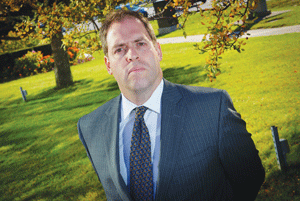
An Ontario Court judge has found the Durham Regional Police Service engaged in an abuse of process by using an estranged father as a police agent to try to build a rapport with his teenaged son in the hopes of eliciting a confession in the beating death of a young relative.
 The conduct involved “particularly manipulative trickery,” wrote Justice Susan MacLean in R. v. S.M. Even if police never intended for the father to act in the way he did, “the misconduct must be treated as police misconduct,” she wrote in the decision issued late last month.
The conduct involved “particularly manipulative trickery,” wrote Justice Susan MacLean in R. v. S.M. Even if police never intended for the father to act in the way he did, “the misconduct must be treated as police misconduct,” she wrote in the decision issued late last month.
“This misconduct offends the community’s sense of fair play and decency,” she concluded.
S.M. is awaiting sentencing following his conviction for manslaughter in July. But on Sept. 24, MacLean ruled intercepted statements made by S.M. to his father that were potentially incriminating to be inadmissible as a result of the conduct.
The judge declined to state that it would always be improper for police to use a parent as an agent in the investigation of a young person. A request by the defence for special rules for police when using an agent to try to obtain evidence from an out-of-custody young person was a question better left for the appellate-level courts, the judge said.
The unusual circumstances of the case have also highlighted a potential gap in the Youth Criminal Justice Act when it comes to police using agents against young suspects who aren’t in custody, says the lawyer who represents S.M. “What exactly is a police agent allowed to do?” asks Jason Rabinovitch, a Toronto defence lawyer.
Nicholas Bala, a law professor at Queen’s University, says there have been cases in Canada where parents have been called to testify about statements made by their children. He’s not aware of any other example where a father has been enlisted as a police agent. “I found the police actions to be very troubling. Hopefully, the judge’s ruling discourages this kind of investigation,” says Bala.
The court heard that S.M. was 15 when his family moved from Toronto to Bowmanville, Ont., in 2013. The teenager often looked after his 10-year-old brother while his mother was out of the house working as well as the three much younger children of his half-sister. One of those children, a four-year-old boy, died in August 2013 as a result of multiple blunt-impact injuries. The child’s mother was in Jamaica and S.M’s mother was at work.
Durham police enlisted S.M.’s father, referred to in the decision as M.F., as part of its investigation. The father has a long criminal record and very little past involvement with his son.
He initially agreed to have his calls with the teenager intercepted. A few months later, the father entered into a formal agreement with police to be an agent.
Durham police provided a scenario instruction sheet as well as money for the father to buy his son gifts, such as Air Jordan shoes for a birthday present, along with meals and a rental car. They also gave him tips on how to build a rapport with his son. “In this case it is clear that the police were exploiting the parent/child relationship,” wrote MacLean.
Transcripts of the recorded meetings show that the father was repeatedly pushing his son to tell him what happened to the four-year-old boy. S.M. declined to do so but he was adamant that his 10-year-old brother wasn’t involved. (S.M. was unaware that the brother was the only other police suspect. After the brother testified in July of this year, the court was invited to find S.M. guilty of manslaughter. The sentencing proceeding is still ongoing).
Rabinovitch says there were a number of factors that made the use of the father as a police agent improper. “The manner in which the father pushed for information was so overbearing, it was found to be an abuse,” he says.
As well, while police enlisted the father as an agent, they charged S.M.’s mother with failing to provide the necessities of life. S.M. was subject to a non-communication order with his mother at that time. “I found this to be particularly problematic,” says Rabinovitch. The judge agreed and found that once police had charged the mother, the special rights to consult with a parent under the Youth Criminal Justice Act meant S.M. could speak only to the person who was acting as a police agent.
In ruling the statements inadmissible, MacLean also referred to the concurring decision last year of Supreme Court Justice Andromache Karakatsanis in R. v. Hart, a case that examined so-called Mr. Big stings by police. Karakatsanis stated that psychological manipulation by state agents harms not only suspects but also the integrity of the justice system.
The use of a parent as a police agent calls out for possible legislative reform, says Rebecca Bromwich, a lawyer and professor at the department of law and legal studies at Carleton University.
While there’s an explicit right for a young person in detention to speak with a parent under the Youth Criminal Justice Act, “the roles and duties of parents are not always clear,” says Bromwich. “To what extent should they be trusting police? It puts parents in a difficult spot,” she adds.
The case of S.M., who was 15 and took care of four young children for several hours a day, also raises questions about priorities around the use of public money, she suggests. “One of the issues here is child care,” says Bromwich.